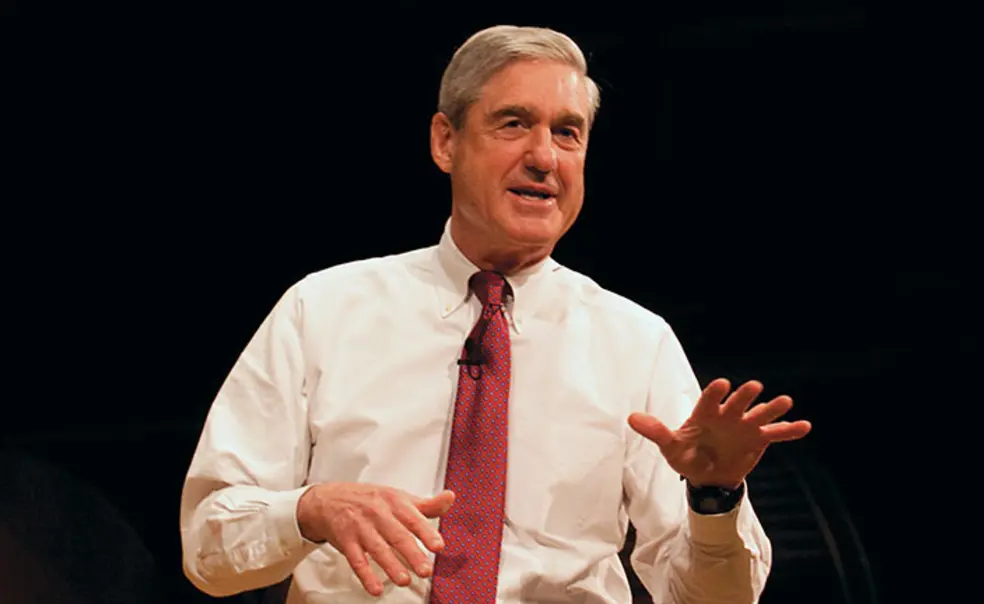Q&A: Robert Mueller ’66 on the FBI’s Role in Safeguarding National Security
Robert Mueller ’66 became director of the FBI on September 4, 2001, just a week before the 9/11 attacks, and served in that post until 2013. From 1990 to 1993, Mueller ran the criminal division of the Justice Department, overseeing the prosecution of former Panamanian dictator Manuel Noriega and Mafia boss John Gotti, as well as the Pan Am Flight 103 bombing case. He spoke with PAW about challenges facing the FBI today.
You spoke at your class dinner on the FBI’s role in safeguarding national security. What did you say?
I talked generally about the effects of September 11 on the Bureau and its response to the president’s mandate to do whatever we can to prevent future attacks. That changed our mission, to a certain extent, from conducting investigations after an attack to preventing attacks from occurring.
We focused on three areas. One was making counter-terrorism our Number One priority. We moved 2,000 agents from the criminal programs over to national security and in particular, terrorism. Secondly, we increased our intelligence capacity to anticipate attacks by tripling the number of analysts in the Bureau. Our metrics changed, as well. It was no longer the number of arrests, indictments, and convictions; it was how much we reduced the threat of an attack. There is really just one metric in terrorism for the public: if somebody gets through, then you have not done your job. Finally, we increased our partnership with state and local law enforcement agencies and worked at the federal level to break down statutory and cultural barriers to exchanging information with the CIA and other national security agencies.
It has been more than 14 years since 9/11. Although there have not been any large scale attacks masterminded by foreign terrorist groups inside the United States since then, is it unrealistic to think that we can entirely prevent smaller, lone-wolf attacks, such as the one last December in San Bernardino?
I think it’s very difficult but that’s what you aspire to.
Do you have any comments on the dispute between Apple and the FBI over providing access to iPhones?
Whenever there is an attack, the concern is always that there might be a second attack, and so you want all the information you can possibly get as to who the attackers were associating with or contacting. You are less concerned about the substance of the discussions than with identifying others who might have been plotting with them. Imagine that you are sitting in the command center after an attack and you have identified the individuals responsible. One of them is killed, but he had a cell phone. It is absolutely critical to get the information off that phone to determine whether other attacks are contemplated and who may be involved in plotting those attacks.
There have been proposals to remove J. Edgar Hoover’s name from the FBI headquarters in Washington. How do you feel about that?
I think it will be resolved relatively soon because the Bureau is supposed to get a new building. So that issue should solve itself.
Interview conducted and condensed by Mark F. Bernstein ’83












No responses yet